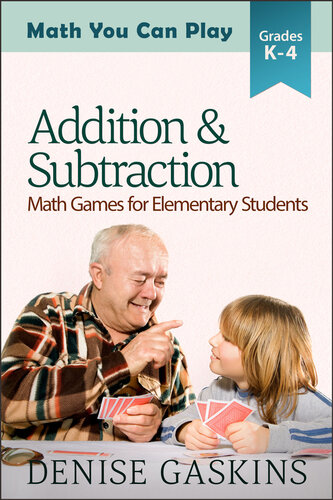

Most ebook files are in PDF format, so you can easily read them using various software such as Foxit Reader or directly on the Google Chrome browser.
Some ebook files are released by publishers in other formats such as .awz, .mobi, .epub, .fb2, etc. You may need to install specific software to read these formats on mobile/PC, such as Calibre.
Please read the tutorial at this link: https://ebookbell.com/faq
We offer FREE conversion to the popular formats you request; however, this may take some time. Therefore, right after payment, please email us, and we will try to provide the service as quickly as possible.
For some exceptional file formats or broken links (if any), please refrain from opening any disputes. Instead, email us first, and we will try to assist within a maximum of 6 hours.
EbookBell Team

4.1
80 reviewsPrevent math anxiety — by playing games!
You'll love these math games because they give your child a sturdy foundation for understanding addition and subtraction.
Help your child learn mental flexibility by playing with numbers, from basic math facts to the hundreds and thousands. Logic games build strategic thinking skills, and dice games give students hands-on experience with probability.
Addition & Subtraction features 23 kid-tested games, offering a variety of challenges for elementary-age students. Chapters include:
• Tens and Teens: Master the concept of number bonds — the relationship between a whole number and the parts that combine to make it — and build a logical foundation for future math.
• Numbers to One Hundred: Develop mental math skills for working with larger numbers. Practice using place value, addition, and subtraction.
• Mixed Operations: Give mental muscles a workout with games that require number skills and logical thinking.
• Logic and Probability: Logic games sharpen inductive and deductive thinking skills, while games of chance build an intuition for probability.
Math games protect your child from math phobia. Games pump up your child's mental muscle, reduce the fear of failure, and generate a positive attitude toward mathematics.
Parents can use these games to enjoy quality time with your children. Classroom teachers like them as warm-ups and learning center activities or for a relaxing review day at the end of a term. If you are a tutor or homeschooler, make games a regular feature in your lesson plans to build your students' math skills.
So what are you waiting for? Clear off a table, grab a deck of cards, and let's play some math!